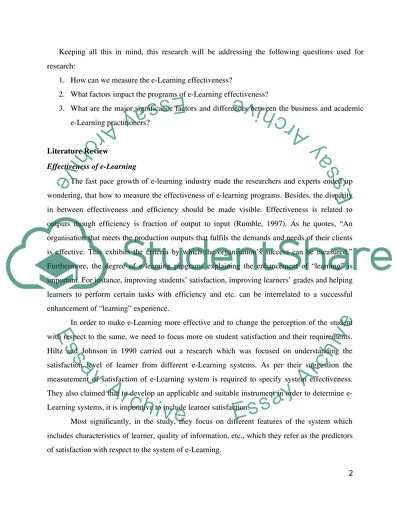Cite this document
(“Effective E-learning To Students Essay Example | Topics and Well Written Essays - 2000 words”, n.d.)
Retrieved from https://studentshare.org/information-technology/1404580-research-proposal-effective-e-learning-to
Retrieved from https://studentshare.org/information-technology/1404580-research-proposal-effective-e-learning-to
(Effective E-Learning To Students Essay Example | Topics and Well Written Essays - 2000 Words)
https://studentshare.org/information-technology/1404580-research-proposal-effective-e-learning-to.
https://studentshare.org/information-technology/1404580-research-proposal-effective-e-learning-to.
“Effective E-Learning To Students Essay Example | Topics and Well Written Essays - 2000 Words”, n.d. https://studentshare.org/information-technology/1404580-research-proposal-effective-e-learning-to.


